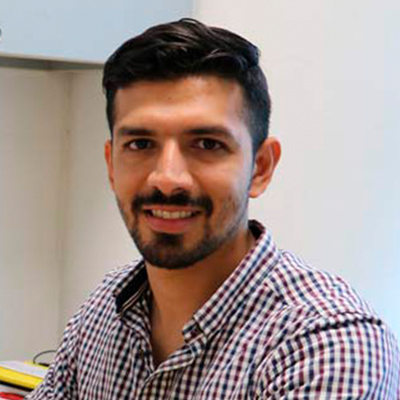Kaleidoscope Eliud Quintero
4. Kaleidoscope
The Tec21 model: a challenge-based education model

Eliud Quintero, PhD in Educational Innovation. He has worked as a specialist in educational trends and is curricular design and development specialist, a lecturer and a teacher trainer. He is currently director of the undergraduate degree in Educational Innovation at the Monterrey Institute of Technology (Tecnológico de Monterrey).
Innovating university curricula is no longer optional; it is an underlying priority need. In today's increasingly complex, uncertain and hyperconnected world, professionals have to be trained to address major global issues, especially those we still do not view as challenges. The Monterrey Institute of Technology's new professional development proposal is based on the skills and knowledge that will be required to tackle the challenges of the 21st century rather than on which 'topics' or 'subjects' need to be taught and learnt.
The Tec21 model consists of four distinctive elements: 1) challenge-based learning as a strategy for developing competencies; 2) curricular flexibility; 3) the profile of the inspiring teacher; and 4) a memorable experience. The new education model delivers a personalized flexible experience of the what, how, when and where of undergraduate education. Part of this curricular flexibility is the opportunity it gives students to explore content from different disciplines before choosing their degree programme, with the aim of equipping students with more tools and information to make that decision or, where applicable, to choose a major or specialization according to their interests.
To achieve that, the curriculum for each professional degree programme is carried out in three stages: a exploration stage centred on the competencies common to all the degree programmes that can be accessed (business, medicine, engineering and sciences, social sciences and government, and creative studies); a focused stage, in which students develop the competencies intrinsic to their specific degree, i.e. the ones that distinguish it from the other degrees that can be accessed through the common first year; and a specialization stage, where they can supplement and orient their education with a major or participate in an international experience.
The curricular structure of the Tec21 model includes not only subects. It has a variety of training units, such as blocks, Tec weeks and Tec semeters. These blocks and semesters allow students from all the professional programmes to develop competencies whilst helping solve real challenges in companies, industries, foundations, government, civil society, etc., receiving guidance and support from their teachers. At the same time, forums such as the Tec weeks allow students to engage in activities designed by other areas and programmes to supplement their training in accordance with their interests.
The redesign of the Tec21 model has been a broad, intense and complex process based on the development of a culture of change and academic and administrative innovation.
